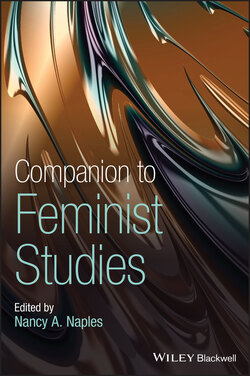Читать книгу Companion to Feminist Studies - Группа авторов - Страница 50
The Personal is Political
ОглавлениеIn the late 1960s, the women who would become radical feminists formed small groups to “rap” about their gendered experiences. These consciousness‐raising sessions were driven by four objectives: opening‐up, sharing, analyzing, and abstracting (Cobble et al. 2014). Problems that had historically been dismissed as private realm, domestic, and separate from the public policy agenda – violence in marriage, for example, and workplace sexual harassment and job discrimination – surfaced as endemic to the female experience and two principles emerged: that the personal is political and that sisterhood is powerful.
In practice, the concept of the personal as political moves issues like rape and domestic violence not merely out of women's diaries but, ultimately into the public sphere; to being spoken about as social problems of which institutions – educative, legislative, and judicial – need to address. The personal is political catch‐cry is underpinned by the belief that power is everywhere and that male dominance impacts on – and taints – all aspects of women's lives including their health and safety. Sex became a crucial component of this discussion, leading to the publication of Kate Millett's Sexual Politics (1970): an exploration of sex – the biological categories of it, as well as its intimate practice – as being a key arena where power relations are enacted. Millett used literature by authors like Norman Mailer to make her point; scholars since have presented a range of sexual political analyses; my own work has explored the sexual politics of advertising (Rosewarne 2007), infidelity (Rosewarne 2009), and sexual perversion (Rosewarne 2011a).
Sisterhood is Powerful was the title of a 1970 anthology edited by Morgan, but the phrase is also central to understanding the link between consciousness‐raising and politics: by sharing stories, not only did women realize they were linked by their subordination, but that their collective action was necessary for change.
